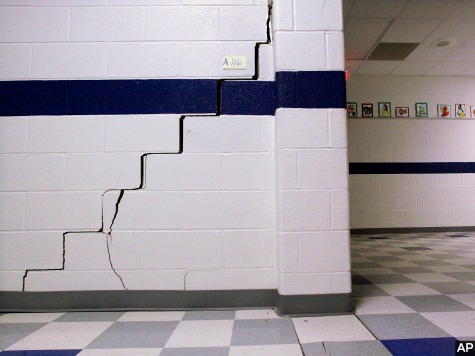
This year, back-to-school means chaos and confusion as many public schools in states that have submitted to the Common Core State Standards are beginning their implementation. Parents, teachers and administrators are preparing for the standardized tests, to be administered next year, that will be based on the K-12 Common Core math and English standards.
Proponents of Common Core say that the new standards, upon which many curricula, standardized tests, and even online learning programs are now being based, promote “critical thinking” in students and focus on the “process” of achieving a solution or response, rather than on the response itself.
“One of the things we learned from research, and there’s a lot of it out there, is that kids do not necessarily learn from the algorithmic method,” Linda Gojak, president of the National Council of Teachers of Mathematics (NCTM) told FoxNews.com. “The assessment is that it is more about kids making sense of what they are learning instead of memorizing a step-by-step process.”
But Common Core’s critics say “critical thinking” is an individualized process in each student, and that, because Common Core is committed to what is “common,” the new standards could actually sabotage its achievement.
“We think the goal of education is to make individual thinkers of our children,” Glyn Wright, executive director of Eagle Forum, told FoxNews.com. “The Common Core does the opposite. The [literacy] standard severely de-emphasizes classic literature which will surely lower critical thinking.”
Similarly, Wright notes, “The math standard focuses on investigative math, which has been shown to be a disaster. With the new math standard in the Common Core, there are no longer absolute truths. So 3 times 4 can now equal 11 so long as a student can effectively explain how they reached that answer.”
In fact, as FoxNews.com reports, Stanford Professor James Milgram, the only mathematician on the Common Core Validation Committee, refused to sign off on the math standards, calling them “in large measure a political document,” when he testified in May of 2011 against adoption of the Common Core standards for the state of Texas.
Milgram said during his testimony:
I had considerable influence on the mathematics standards in the document. However, as is often the case, there was input from many other sources – including State Departments of Education – that had to be incorporated into the standards…
A number of these sources were mainly focused on things like making the standards as non-challenging as possible. Others were focused on making sure their favorite topics were present, and handled in the way they liked.
Milgram added that the manner in which the standards evolved led to a number of “extremely serious failings” in the Common Core that made it ill-timed for any state hoping to improve math test scores to implement them. He further indicated that the Common Core math standards were designed to reflect very low expectations.
Though Professor Timothy Shanahan of the University of Illinois, who served on the independent expert panel that reviewed the standards, supports Common Core, he admits that the new standards are “promoting greater attention to science, history and other informational texts.”
“Studies show that American kids do better with stories than with science or history materials, placing them at a real disadvantage in international economic competition,” Shanahan told FoxNews.com.
Critics assert that “the stated policy of emphasizing ‘informational,’ or non-fiction reading, in English will inevitably come at the expense of literature classics,” which are not only fun to read but also teach students about perspective, the skill of analysis of character and personality, and how to formulate a writing style.
Brigham Young University English Professor Alan Manning reportedly wrote in an email statement to opponents to Common Core in Utah, “An argument can be made that any improvement in reading/writing instruction should include more rather than fewer exercises where students write stories themselves that are modeled on the classics.”
Manning added, “This creates a more stable foundation on which students can build skills for other kinds of writing. The Core standards would prevent public schools from testing these kinds of approaches.”
Common Core’s critics are not only concerned about the academics involved in the standards. Many also assert that the new standards are meant to “nationalize” education.
“The bottom line is that the Common Core Initiative is nationalized education – to which we are starkly opposed,” Wright said. “Formerly, parents would have control over what their children are being taught in the classroom, but under Common Core everything comes down from a central, national group. Because the tests and standards are copyrighted and must be used as-is, parents will not be able to control the material on which their children are taught and tested.”
But, Chad Colby, a spokesman for education non-profit Achieve, told FoxNews.com, “The common core doesn’t tell you how to teach students. The curriculum will still be at the state level.”

COMMENTS
Please let us know if you're having issues with commenting.